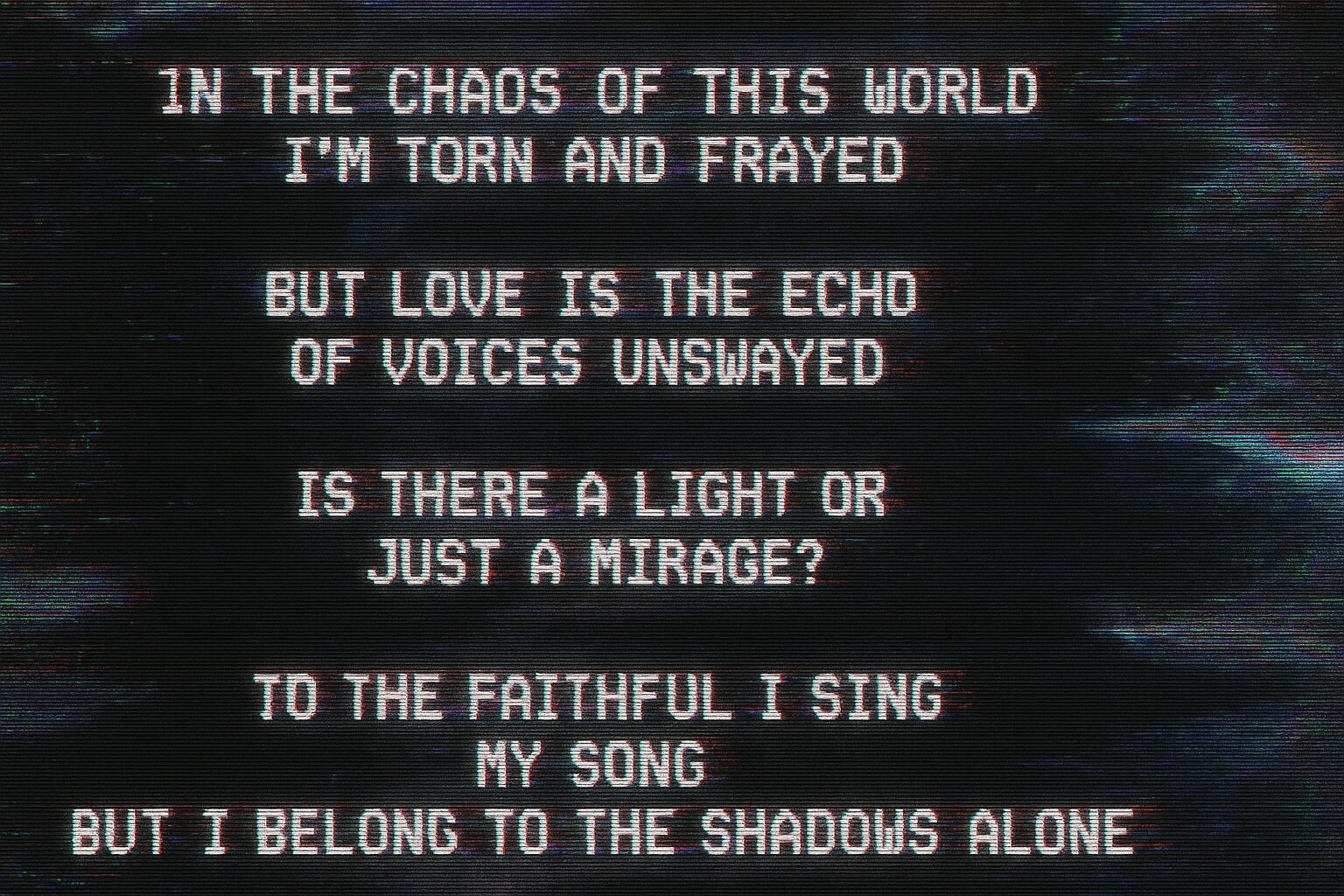The poem SHADOW begins with rupture.
“In the chaos of this world / I’m torn and frayed”
This isn’t just a metaphor—it’s a condition. The narrator speaks from a place where the digital and the emotional intersect. The chaos isn’t just outside—it’s within, filtered through screens, notifications, and sonic residue. The tearing is both psychic and social, a disconnection that feels almost inevitable.
And yet, there’s love.
“but love is the echo / of voices unswayed”
What is love in a world of distortion? It’s not clear form or direct touch—it’s an echo. A haunting, a reverb. Love becomes a trace, the residual warmth left behind by voices that refused to bend. This line speaks to loyalty in a decentralized world, where voices get lost in the algorithmic noise, yet still resonate if we listen closely.
Then comes the questioning.
“Is there a light or / just a mirage?”
It’s the quintessential inquiry of the digital age. What is real? What is projection? Influencers, filters, virtual idols—these are our new mirages. The line suggests suspicion but not rejection. It acknowledges our desire for light while recognizing that sometimes, it’s just heat rising off asphalt.
The next image is sonic and violent.
“drowning my fears / in sonic collage”
Here the fear isn’t silenced—it’s drowned. Covered in layers of sound, glitch, static, screams mixed with synths. The collage is crucial—it implies no harmony, no clarity. Just fragments stitched together, reflecting how we often process emotion today: not linearly, but through loops, samples, distortions.
But there’s a turn. A commitment.
“To the faithful I sing / my song”
Despite it all, the narrator still sings. To those who listen, who believe, even if they are few. This is a radical act. To keep creating, expressing, transmitting—especially when the connection feels broken—is to resist dissolution. It’s an offering made not for validation, but for survival.
Finally, we land in the dark.
“but I belong to / the shadows alone”
Not I’m lost in the shadows, but I belong. There’s power in this acceptance. To be in the shadow is to step away from the spotlight, from surveillance, from consensus. It’s a claim to anonymity, to solitude, to creative freedom. This isn’t despair—it’s identity reclaimed on one’s own terms.
SHADOW doesn’t give us answers. It gives us resonance. It lets us feel the glitch, the ache, the electric pulse of being fragmented yet still forming song. For anyone who has ever felt like their voice was swallowed by the noise, this poem is a quiet anthem.



コメント